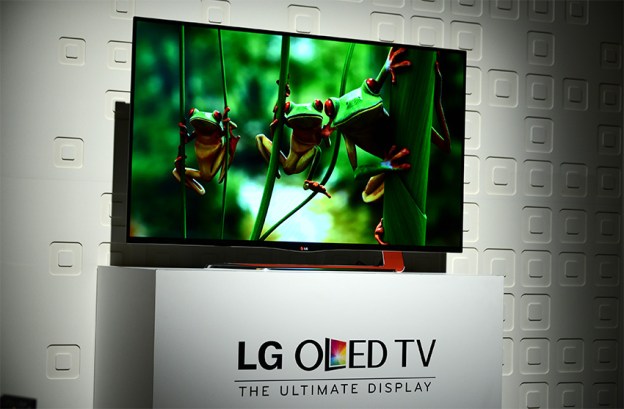 How’s this for corporate espionage? Police in South Korea paid a visit to Samsung’s headquarters south of Seoul yesterday and searched the offices of the company’s display-making unit as part of an investigation into an alleged leak revolving around OLED technology.
How’s this for corporate espionage? Police in South Korea paid a visit to Samsung’s headquarters south of Seoul yesterday and searched the offices of the company’s display-making unit as part of an investigation into an alleged leak revolving around OLED technology.
Samsung has a considerable stake in the market for OLED (Organic Light-Emitting Diode) panels and technology. The investigation is trying to determine if employees or partners at the company’s main rival in South Korea, LG Electronics, leaked secrets about the technology to Samsung.
Probes like this have become a little more common between these two companies as of late. Just last summer, six employees at LG’s display unit were charged with stealing OLED technology from Samsung. At the time, LG asserted that the information its employees were charged with leaking was already known in the industry, and thus, didn’t constitute actual “trade secrets”.
Not surprisingly, Samsung says it did nothing wrong, and that it has no need or desire to attain other companies’ technology in any illicit or illegal way. In turn, LG also publicly rebuked any notion that they reported anything
Regardless of what the actual facts are, the timing for this is interesting, given that LG has delayed the release of its 55-inch 55EM9700 OLED TV to the second half of the year. The company initially showcased the TV at CES in Las Vegas in January and announced a U.S. launch in March for $12,000. Shipments are set to hit retail in the U.K. in July, but nothing has been confirmed for the U.S. market. It’s already been released in South Korea.
Meanwhile, Samsung announced on February 19 that it plans to release its own OLED TV within the first half of 2013, but hasn’t provided a lot of detail on what a rollout would look like.
Asian companies tend to share technology in some cases, where rivals license out components to each other, but this case has been described as flat out theft of secrets that are allegedly proprietary. We’ll see if this one unfolds in any dramatic way, and if it ultimately affects OLED TVs from both companies coming stateside.
Editors' Recommendations
- Best Samsung TV deals: Save on 4K TVs, QLED TVs, OLED TVs, 8K TVs
- Best OLED TV deals: Save on LG C3, Samsung S90C, and more
- Samsung unveils pricing and preorder details for its 2024 OLED TVs
- You Asked: home theater setup challenges, in-home TV calibration, and is Sony abandoning OLED
- QLED vs. OLED TVs: which is better and what’s the difference?




